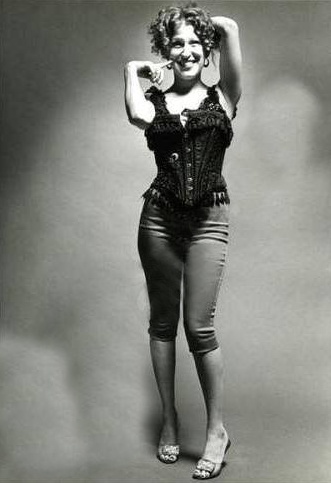
Newsday
THE BUCK STARTS HERE
Clear Channel money pie made with celebrities
BY WARREN BERRY. STAFF WRITER
Who needs Howard Stern flapping his mouth when you can
make just as much money baring Britney Spears’ navel or Bette Midler’s tonsils
or Donald Trump’s brainstorms?
If you broke down the business plan at Clear Channel Communications (CCU),
those are the kinds of faces you’d see on the pie chart.
It must be comforting to be a communications company so well-off that you
don’t break a sweat as you order your radio stations to drop morning drive
time’s No. 1 “shock jock.”
It’s quite a contrast with other companies such as Martha Stewart Omnimedia
(MSO) or even Warren Buffett’s Berkshire-Hathaway (BRK), where a single person conceivably could determine an entire company’s future. At Clear Channel, when things get dicey with one prima donna, there’s always an 8-by-10 glossy of another potential moneymaker on the corkboard.
Clear Channel may be best- and most-controversially known for being the
nation’s dominant radio company, but it also happens to be one of the world’s
largest promoters of live entertainment and is the owner-operator of more
concert venues than practically anyone around the globe.
Fresh from triumphs with Britney and Bette, it trots out an ageless Madonna
and such perennials as David Bowie and KISS, heavy metalers who have just a
coating of rust. On radio, some critics contend, the programming is too
predictable, yet the national offerings do run the gamut from the Rev. Jesse
Jackson to The Donald, who during the next season of “The Apprentice” will tell
us all the next day why he canned contestants. (This could be one of the few
times when a radio show was inspired by TV rather than the other way around.)
Last week the company revealed a 64 percent surge in first-quarter earnings
to $116.5 million, aided by the $47-million sale of its stake in Univision
(UNV), the Latin-American network. But even as it predicted further
“double-digit” gains for the full year, the company said longtime CEO Lowry
Mays had undergone brain surgery April 30 after feeling numbness on his left
side. By Thursday, though, his son Mark Mays, Clear Channel’s president and
chief operating officer, reported that “the surgery was successful and Lowry is
in good spirits and mentally alert.” Lowry Mays is the driving force in the
expansion of Clear Channel, which acquired nearly 1,200 stations after the
Telecommunications Act of 1996 ended the 40-station ownership cap. (It isn’t
going unchallenged. In August, a lawsuit by a rival Denver promoter is to go to
trial, charging that Clear Channel used its dominance to block publicity of
competitors’ events.) The stock is at around $41 a share, midway between its
high and low for the past 52 weeks.
The company reported that a slight improvement in advertising boosted the
radio division’s revenues 5 percent to $833 million. But thanks to the likes of
Bette and Britney the entertainment division’s sales jumped 17 percent to $514
million.
There’s a less-glamorous side to Clear Channel: Outdoor advertising, not as
venerated as show biz, where revenues jumped 16 percent to $522 million. But
this is no longer a business built around those big billboards that community
beautifiers love to hate. “Outdoor” encompasses all kinds of nontraditional
media such as electronic messaging boards and paging systems at airports. And
there’s “street furniture,” which can encompass anything from a public bench
(with advertising message of course) to a bus-stop shelter. In Pittsburgh,
Clear Channel developed an offshoot: The stand-alone public toilet. It’s
something every city might go for some day, a secure little one-room house with
coin-operated entrance, good lighting, tasteful design and its own
self-cleaning floor.
Who needs Howard Stern?






